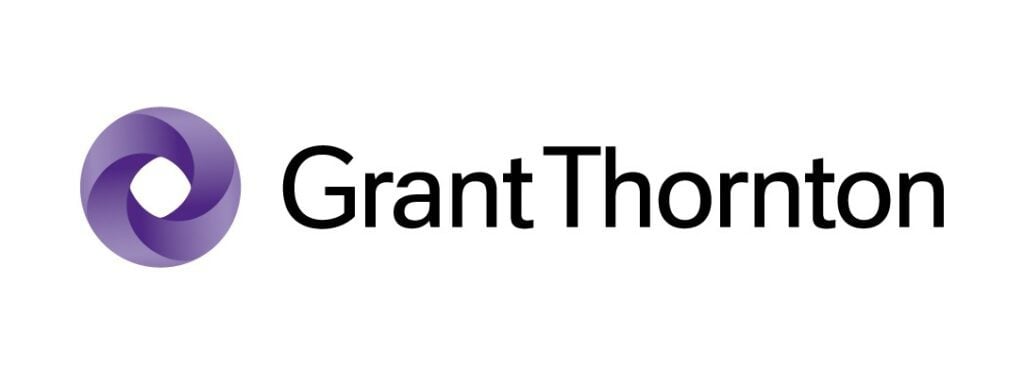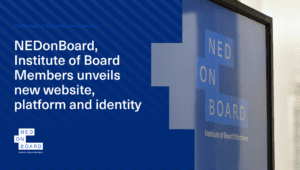Written by Karen Brice (Director at Grant Thornton LLP)
In the current challenging environment, with the aftershocks of the last 18 months still being felt, what can boards do to ensure they are contributing more to support their organisations and stakeholders?
Learning from the corporate decisions and actions taken during the pandemic will help us build a sustainable and resilient economy in the future, whether it’s the governance practices that enabled the board to function safely, or the quality and agility of its leadership.
And it’s not just about leadership and governance. Diversity in thinking is where the real value sits. The quality of the board’s discussion should bring about challenge, fresh thinking, perspectives, possible synergies and above all, collaboration. The board of the future will be measured by the sum of its parts – dynamic, risk-aware, aligned, innovative and purposeful, where the non-executive director role is understood, valued, and optimised.
So, what does this mean for NEDs? The faster businesses have to adapt, the more important it becomes for board leadership and governance to stay ahead of the game. To do this it is essential that you equip yourself with the necessary guidance and evidence of good practice. Whether your business is looking to redefine its direction or preparing for a challenging few months of operating in an increasingly squeezed market, here are five things to incorporate into the agenda as boards and management teams face the future:
- Take time to discuss the board’s purpose. Is it really understood (if it exists) and most importantly, is it always used as the North Star for decision making? Without a collective purpose, a board can be seen as detached, fragmented, even arrogant and out of touch with the needs of its stakeholders. At this time of uncertainty, this is a significant risk for the owner or chair. The new board’s mindset is to work together to bring best value.
- Make awaydays more than just strategy. By looking at the ‘what’ and exploring the ‘how’, the board and management team can explore the whole reality not just the theoretical. Ask the question; what will the business need to be 18/24/36 months from now? For example, with so much work being done by leaders in 2020 around wellbeing and mental health, all could be lost if the successes of last year aren’t built into the future plan. Don’t shy away from engaging an external facilitator or board coach to challenge assumptions and open-up discussions, generating greater inclusion and diversity of thinking.
- Invest in a board and/or management team developmental evaluation. This light-touch review shouldn’t be a formal appraisal, but an opportunity to create a level playing field. Many management teams work in the silos of their specialisms and board members will have their own strengths, limitations, and biases. Understanding the alignment (or misalignment) of the management team or board as peers around ‘what is’ and ‘what could be’ will support the business today and provide a coherent future direction.
- Consider the benefits of some of the new leadership survey diagnostics now available. Grant Thornton partners with BoardClic to offer a range of up-to-the-minute leadership surveys for boards, CEOs/MDs, and management teams. These thought provoking, non-predictive surveys highlight areas of strength and points of interest to surface misalignment and gaps in understanding. Today’s surveys at this level should have a focus on development, the results generating insights that provoke discussion.
- And finally, think outside the succession box. Consider what wider skills will be needed around the board table in the future. Is a group of industry specialist NEDs enough? Or would an entrepreneur or strategist change the dynamics and quality of discussion and take it to the next level? More and more, chairs are thinking wider for their non-executive pool. Likewise, how seriously are you taking the succession of your senior managers? The leap from management team to management can be huge. What are you doing to set them up for success? Succession must be about growth and future performance if businesses are to thrive and make for great places to work.
Many organisations apply the provisions to the UK Corporate Governance Code even if they fall outside its scope. The Code establishes best practice, but importantly it offers flexibility. This flexibility should be seen as an opportunity, not a threat, as it allows boards to take a thoughtful approach to governance. Through Grant Thornton’s Corporate Governance Review 2021, we explored whether COVID-19 has driven a shift in market and best practice.
In a session co-hosted by NEDonBoard and Grant Thornton on 7 December 2021, we explored what the best companies are doing when it comes to governance, flag those areas we feel need more attention in the upcoming reporting season and share lessons which can also be applied to the wider board and business community.
For additional resources on the UK Corporate Governance Code and how to discharge your duty as a director, please visit the Modern Board Member Masterclass.




